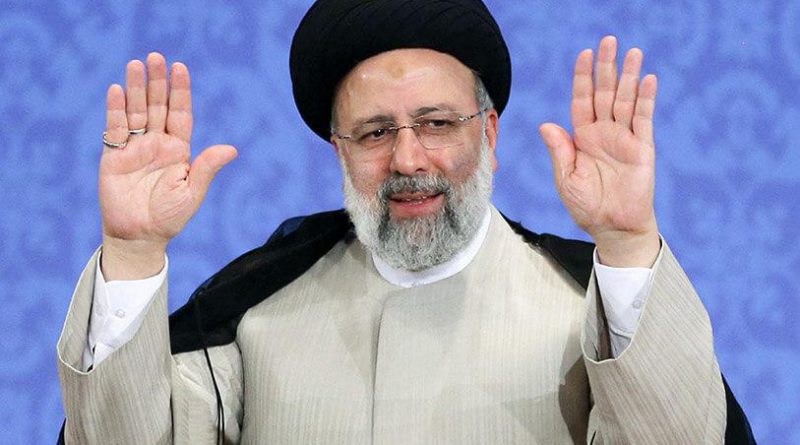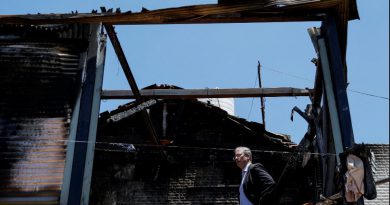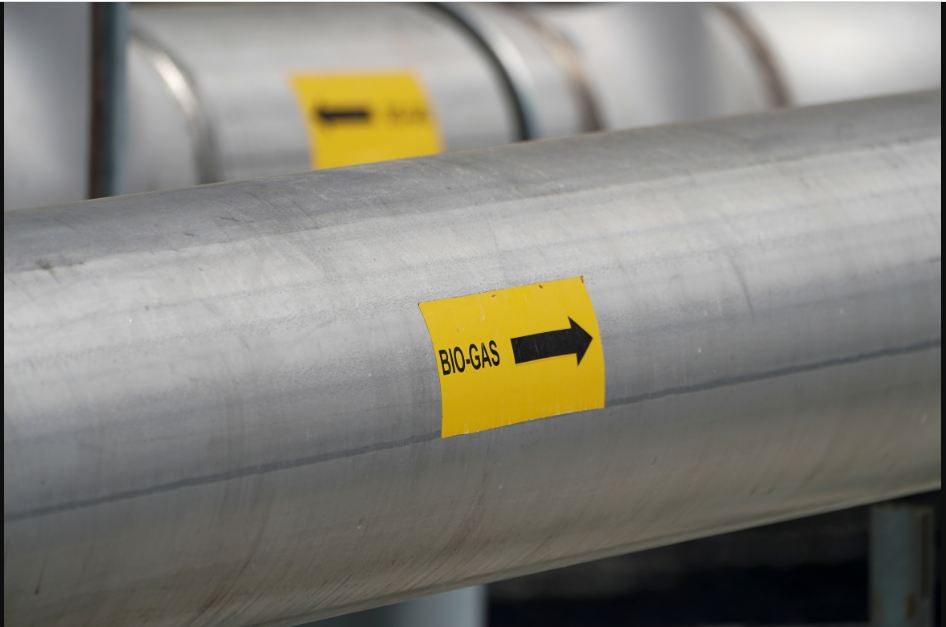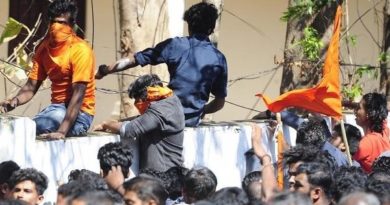100 days into Raisi’s presidency: Corruption, Militarization and more
The picture in Iran after 100 days seems a little bit clearer. Everything is moving—but backwards.
On June 20, 2021, Ebrahim Raisi was declared Iran’s president after controversial presidential race marked by voter antipathy and vetting of most powerful contenders. He captured 62% of the votes—but the turnout was 48.8%, the lowest since 1979. Raisi’s victory was a foregone conclusion given the circumstances leading up to the election. Only seven candidates contested the election after a controversial vetting process carried out by the Guardian Council. All the powerful candidates—including Mahmoud Ahmadinejad—have been disqualified, clearing the way for Raisi to become president.
During the presidential campaign, Raisi announced an ambitious platform—with pillars of fighting corruption and improving the economic situation worsening day after day by the US sanctions and the regime’s failure to address the people’s grievances. Now, 100 days have passed since Raisi took office. It seems the conservative president—whose human rights record is so horrendous that he is already sanctioned by the US—is failing to deliver on his promises. The economy is worse. The people are deeply dissatisfied. He even faces allegations of nepotism by lawmakers—and is on the quiet militarizing the government.
The Iranians have expressed their opinions about Raisi’s tenure in office so far. In the survey, the Iranians said they see no change in the country since Raisi came to power. “We haven’t seen anything. I mean that things we feel in our life didn’t change for the better. On the contrary, things have become worse. We see nothing but inflation. We didn’t see anything that changed or the better or change that has been made.”
This bleak outlook of the present—and maybe the future—is caused by the regime’s intransigence and insistence on continuing its expansionist projects overseas. When former US President Donald Trump pulled Washington out of the deal in May 2018, one of his arguments was that the nuclear deal, formally known as the Joint Comprehensive Plan of Action (JCPOA), has allowed the release of billions of dollars for the Iranian regime—which he used in fomenting terrorism and cementing networks of militias.
Another Iranian citizen said, “When I reflect on the current situation, I don’t see any significant difference between the current government and its preceding one. They are even worse. They themselves claim that they have presented a stellar performance, succeeded in some sectors or vaccinated all the citizens. But in fact they are worse than the previous governments”.
The economic landscape in Iran is actually grim. The country’s economy is battered by crippling sanctions imposed by the US administration following its withdrawal from JCPOA. The currency (toman) is on a slippery slope—with each dollar equaling 31,040 tomans. At the start of Raisi’s presidential term, a dollar posted nearly 25,000 tomans—an increase of 6% in 100 days. Oil exports are still under the US embargo, slashing from over 2.5 million barrels per day before sanctions to 404,000 barrels in 2020.
“Nothing has happened over the past 100 days, except for the dollar becoming more expensive as well as some unrest in Isfahan and Tehran—where teachers have gone on a strike—and nothing positive has happened, another Iranian citizen said in the survey.
Some may argue that the worsening economy isn’t Raisi’s fault. The previous governments—and the supreme leader who has the final say over all matters—share the blame. But one of the issues for which Raisi was vehemently campaigning is the fight against corruption. Raisi introduced himself as the firefighter who will extinguish the blazes of corruption. But the reality suggests otherwise. Raisi—the anti-corruption warrior—is enmired in corruption and nepotism.
In mid-November 2021, the Raisi government came under fire for what social media users and watchers have called ‘bourgeoning nepotism’ that involved the appointment of relatives of some of his cabinet ministers. People on social media considered the acts to be ‘in stark contrast’ with his electoral slogans of fighting corruption and appointing efficient cadres. The uproar has gone beyond social media platforms. Lawmakers, newspapers and media outlets have spoken out against the matter.
Yet, the Islamic Consultative Assembly (Iran’s parliament) has dealt a blow to Raisi when it rejected his candidate for the ministry of education Masoud Fayazi because of the kinship between him and the head of Tehran municipality, who is one with close ties with the president. Nearly 35 Iranian lawmakers have warned against the appointment of relatives to government positions. They urged the government to prevent such appointment and focus instead on the efficient cadres. Ali Sufi, a reformist political activist, has criticized in remarks to ILNA the appointment of relatives to government positions. He said such appointments would obstruct the work of the government which didn’t abide by the slogan of ‘giving precedence to efficient cadres’ it raised.
Failure to address corruption—his flagship slogan—and even becoming mired in it by nepotism weren’t Raisi’s only blunders. He is orchestrating a more dangerous scheme that serves the regime. More IRGC commanders are being appointed to government posts, making militarization one of the hallmarks of his term.
Ebrahim Raisi has brought in his government all the officials endorsed by the supreme leader. He handpicked ministers from among former and current commanders of the Revolutionary Guards Corps (IRGC). They have entered the arena of politics under the slogan ‘O Khamenei, we have come in display of obedience’.
In her article published on Radio Farda, she wrote: “Those military commanders have taken off their military uniforms and began to first conquer the first trench—the legislative authority. Today, they are occupying senior government and ministerial positions within the Raisi government.”
The columnist pointed to the senior IRGC commanders within Raisi government. They include Ahmed Vahidi, the minister of interior. He was the first commander of Qods Force who faces international sanctions on terrorism charges. Raisi government, the columnist adds, includes Hossein Rezaei, Raisi’s deputy for economic affairs and the former IRGC commander.
The militarization of the Iranian regime isn’t a spur of the moment. It had begun decades ago. Watchers of the Iranian political arena attribute the Iranian regime’s shift from a theocracy—infused with religious indoctrination established on Velayat-e Faqih—to a military dictatorship isn’t without a reason. On top of those reasons comes Khamenei’s lack of charisma and religious appeal projected by his predecessor, the first supreme leader of Iran Ruhollah Khomeini.
“The clout and influence of IRGC commanders within the government of Raisi have become so extensive that they take on positions in ministries unrelated to their military career. Those positions—in the ministry of tourism, health and sports—need efficient civilian cadres,” the Iranian columnist said.
Yet she spoke of the IRGC commanders’ taking over as governors and heads of municipal council, let alone chairing the economic institutions such as the Budget and Planning Organization. “The IRGC commanders have succeeded in forming a military government—headed by a civilian figure—for the IRGC to achieve its end,” she noted. Ehsan Mahrabi, an Iranian analyst, said that the government of Ebrahim Raisi includes the biggest number of military officials in the history of the Islamic republic—who assume positions as governors, ministers and government officials.
The picture in Iran after 100 days seems a little bit clearer. Everything is moving—but backwards. The economy is in free fall. Corruption is increasing. And—adding insult to injury—the military commanders of the IRGC are seeping into the apparatuses of the state, making up a new more repressive ruling class. The Iranian regime has propagated the notion that Raisi is the fittest. He is the powerful guy who would solve Iran’s chronic problems. But that was the trick. Raisi is the best man–but for the regime, not the people. He would do what benefit the regime rather than extricate the people from the current economic, social and political woes.
Mostapha Hassan Abdelwahab is an Egyptian journalist and political analyst. He focuses on the Iranian and Iraqi affairs as well as political Islam groups. He has works published in Vocal Europe, the Greater Middle East and elsewhere.



